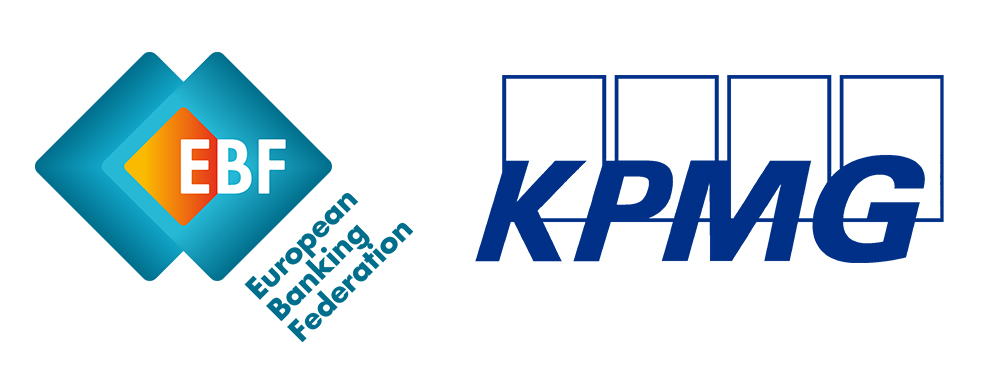
EBF PRESS RELEASE
x
Banks prioritize SDGs requiring greatest financing impact, study finds
BRUSSELS, 24 June 2021 – The European Banking Federation (EBF) together with KPMG Spain today published a report which outlines European bank practices in supporting and implementing the UN Sustainable Development Goals (SDGs). The study provides an overview of best practices and main challenges for the banking industry in implementing the 17 global goals more than five years after their adoption.
The European banking sector plays an important role in achieving the 2030 Agenda due to its capacity to provide and channel resources towards sustainable initiatives that contribute to the implementation of the SDGs. To achieve this goal, most banks are identifying ways in which their activities can contribute to delivering the global sustainable development agenda, with about half of survey respondents reporting the use of indicators and targets aligned with the SDGs.
According to the study, banks give priority to SDGs on which their financing activities can make the biggest impact, as opposed to areas where their influence would come from their role as employers or purchasers of products or services. While all SDGs receive some attention, the SDGs that receive the greatest bank focus are those related to economic growth and decent work (SDG 8), climate action (SDG 13), clean energy (SDG 7), sustainable cities and communities (SDG 11) and responsible consumption and production (SDG 12).
Sustainable-focused products have high potential as a source of SDG financing. 63.3% of banks surveyed in the study have already launched products, services or commercial initiatives based on the SDGs. For bank customers, these mostly include bonds and investment funds aligned with the SDGs. At the retail level, banks are developing products and services that promote a transition to a low-carbon economy, ranging from green mortgages to loans for the purchase of eco-friendly vehicles. Some products also promote other topics such as entrepreneurship or gender equality.
Establishing sustainable financing frameworks also enables the banks to identify activities that can channel funding into projects aligned with the SDGs. In terms of portfolio evaluation to measure alignment with the SDGs, progress has thus far been uneven, with most banks reporting that little headway has been made in integrating these aspects into the business.
The same trend is observed in terms of defining objectives and metrics suitable for monitoring. According to the study, this is largely motivated by the lack of a methodology to facilitate these tasks, and by the need to engage in strategic business thinking that considers SDGs from the initial stage.
“This unique report provides a first snapshot of the current landscape when it comes to banks’ contributions to SDG implementation,” said Burçak Inel, EBF Director of Financing Growth. “The banking industry has an important role to play in delivering the 2030 Agenda and I hope that these findings can promote best practices in implementing SDGs across our industry as well as help identify and solve challenges faced by banks in this area.”
“An increasing number of banks are already working on aligning their strategies and lending practices to the SDGs, even though there is still lots to do,” said Ramón Pueyo, Partner, Head of Sustainability and Corporate Governance, KPMG in Spain. “Giving them standardized methodologies and working further on targets and KPIs to assess implementation, are some of the next steps that should be taken.”
The report will be discussed during a joint launch event on 24 June 16:00 CEST 2021. Click here to register.
x
For more information:
Ruta Barthet, Senior Media and Communications Officer
r.barthet@ebf.eu
+32 492 46 73 04
x
About the EBF:
The European Banking Federation is the voice of the European banking sector, bringing together 32 national banking associations in Europe that together represent a significant majority of all banking assets in Europe, with 3,500 banks – large and small, wholesale and retail, local and international – while employing approximately two million people. EBF members represent banks that make available loans to the European economy in excess of €20 trillion and that reliably handle more than 400 million payment transactions per day. Launched in 1960, the EBF is committed to a single market for financial services in the European Union and to supporting policies that foster economic growth.
About KPMG:
KPMG is a global organization of independent professional services firms providing Audit, Tax and Advisory services. We operate in 146 countries and territories and in FY20 had close to 227,000 people working in member firms around the world. Each KPMG firm is a legally distinct and separate entity and describes itself as such. KPMG International Limited is a private English company limited by guarantee. KPMG International Limited and its related entities do not provide services to clients.
European Banking Federation
The European Banking Federation is the voice of the European banking sector, bringing together national banking associations from across Europe. The federation is committed to a thriving European economy that is underpinned by a stable, secure and inclusive financial ecosystem, and to a flourishing society where financing is available to fund the dreams of citizens, businesses and innovators everywhere.
Contact
Brussels office:
56 Avenue des Arts
B-1000 Brussels
+32 2 508 37 11
Frankfurt office:
Weissfrauenstrasse 12-16
D-60311 Frankfurt am Main
+49 69 17509942
Email:
mediacentre@ebf.eu
Recent Posts
- Stress test reaffirms the need for close cooperation between banks and supervisors to ensure cyber resilience
- EBF Response to the BIS discussion paper on the role of climate scenario analysis in strengthening the management and supervision of climate-related financial risks
- Vacancy: Trainee on Innovation & Cybersecurity



